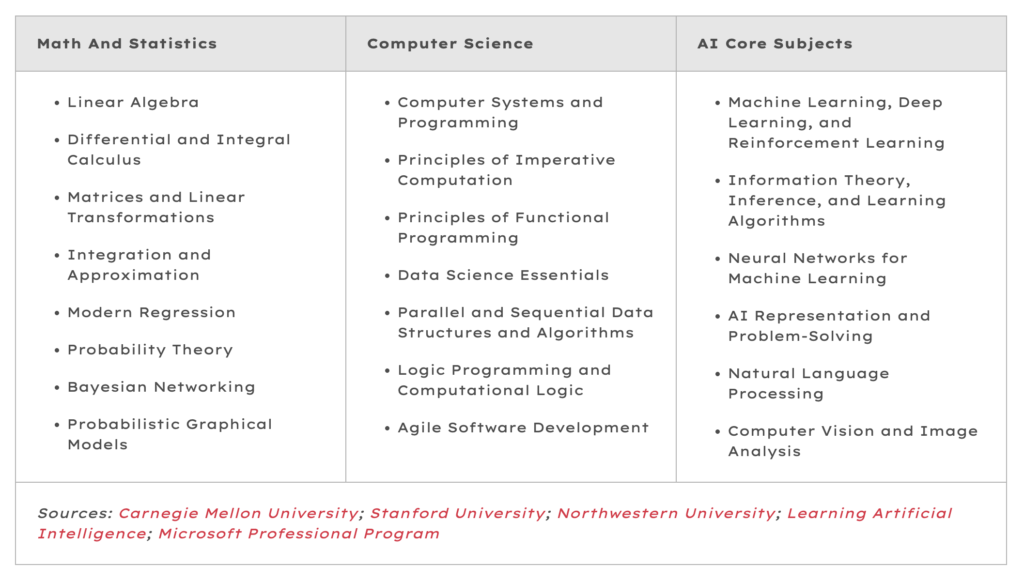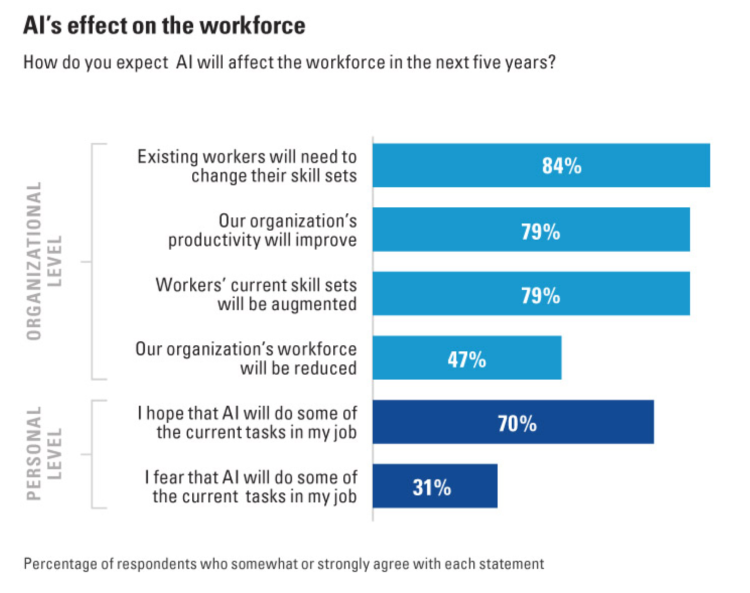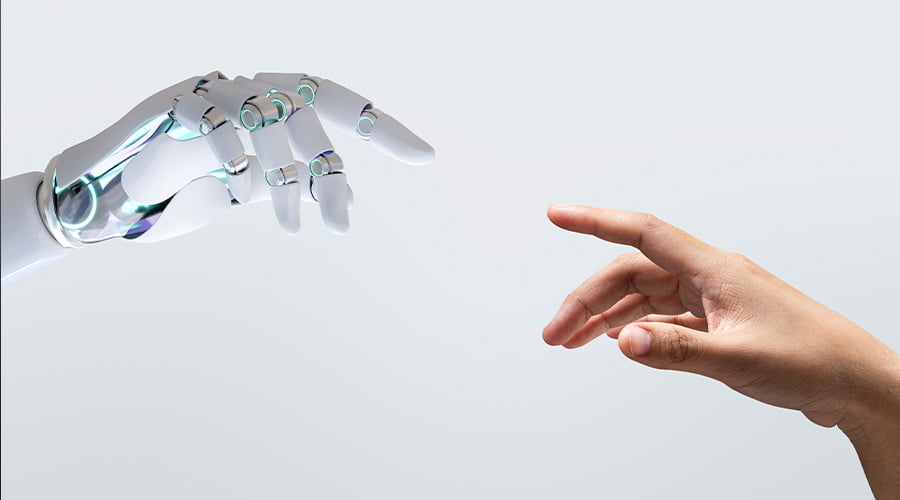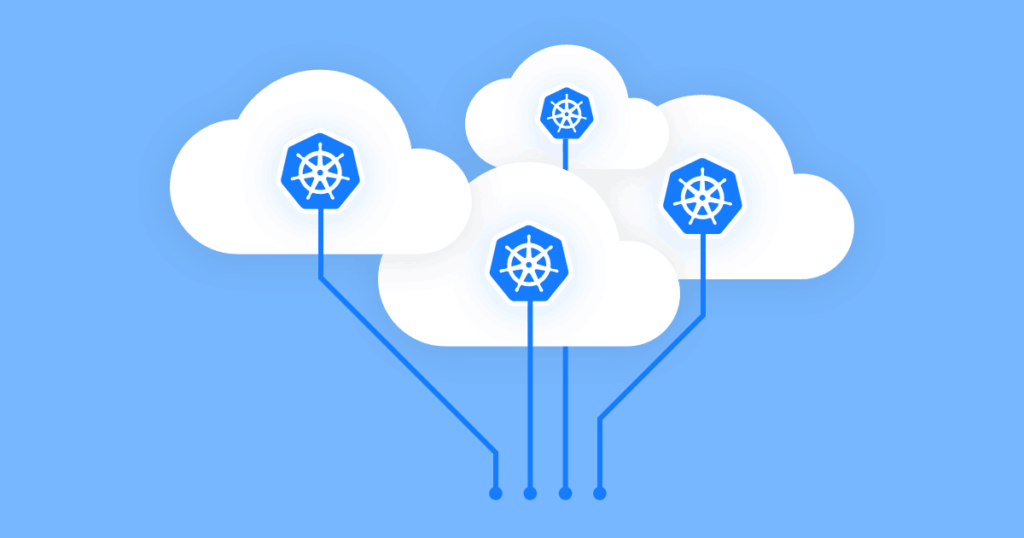Artificial intelligence (AI) promises to deliver some of this century’s most significant and disruptive innovations. Currently, we have conversational AI that helps you answer the question more precisely with the understanding of intent and context. In the near future, there will be self-driving cars, robotic assistants, and automated disease diagnosis are all products of an emerging AI revolution that will reshape how we live and work.
Research says that the demand for talented engineers has more than doubled in the last few years, and there are limitless opportunities for professionals who want to work on the cutting edge of AI research and development.
While jobs designing and improving AI applications are growing, some analysts predict these efforts will disrupt economic activity in a big way. This is because AI systems can process infinite amounts of data, and human beings simply aren’t up to the task.
However, despite many new technologies being predicted to replace the human role, there always be new jobs and professions needed to support this technology. While AI is affecting almost every industry and function, some roles and specializations are more in-demand than others. Just like computers that are predicted to replace workers, though until now, we have many new jobs related to this technology. Job seekers should research and identify the high-demand AI roles and specializations that match their interests and strengths.
AI consists of several overlapping disciplines. Understanding statistical methods, for example, is just as important as a background in computer science. In addition to the subjects listed here, it can be helpful to take interdisciplinary courses in areas like cognitive science to provide a conceptual framework for AI applications.

With such wide abilities and courses to acquire, AI jobs are promising for the future. While technical skills are essential for AI jobs, employers also value soft skills such as communication, teamwork, creativity, and critical thinking. Moreover, as AI is increasingly being designed to interact with and serve humans, having a human-centered mindset and ethical awareness is becoming more important. Here are some future jobs that are influenced by AI/ML:
Augmented Copywriter
A Copywriter who uses AI to generate content ideas, find information and write copy. Start with prompting (talking to the AI), extracting information provided by AI, editing to improve copy’s tone of voice, copywriting, and psychological principles.
Chatbot Product Manager
A product manager that charge of building, improving, and controlling the work of the company’s chatbot. It should have customer knowledge, AI product comprehension, and transform insights into AI messages. although the chatbot might replace customer support, businesses still need to hire a product manager to take care of it.
Big Data Architect
A big data engineer is a professional in charge of developing, constructing, evaluating, and maintaining complex data processing systems algorithms that work with large databases. Qualifications to become a Big Data Engineer include expertise in data mining, data integration, and data visualization, along with practiced skills with Java, Python, and C++. Having in-depth knowledge of machine learning algorithms, neural networks, and deep learning is extremely valuable.
Algorithm Engineer
Algorithm engineers are the ones who design, analyze, implement, optimize, and integrate existing algorithms that offer real-time solutions when installed into software or hardware. You need to hold a master’s or doctorate in computer science-related fields and be fluent in programming languages such as C++ and Java.
AI-Marketing Ops
A hybrid marketer and engineer in charge of implementing the organization’s new AI projects. With skills in AI engineering, project management, and marketing knowledge. Top executives will need experts to implement AI ideas and projects in real life. AI will need key people to plan and organize a system that needs AI. This is more than a job, it’s a leading role that will future-proof your career.
NLP Engineer
Natural Language Processing (NLP) engineers are AI professionals who specialize in human language, including spoken and written information. The engineers who work on voice assistants, speech recognition, document processing, etc., use NLP technology. For the role of an NLP engineer, organizations expect a specialized degree in computational linguistics. They might also be willing to consider applicants with a qualification in computer science, mathematics, or statistics.
IoT Engineer
A professional who designs develops and maintains the hardware and software systems that enable devices to connect and communicate with each other through the internet. They work on various aspects of IoT technology, such as embedded systems, wireless communication, cloud computing, and data analytics, to create efficient and secure IoT solutions. The IoT engineer’s responsibilities may include programming, testing, troubleshooting, and integrating different components of the IoT system.
Hybrid Manager
A professional who oversees the collaboration and interaction between AI systems and human workers in a workplace setting. This role involves identifying opportunities where AI can be effectively integrated into human workflows and managing the implementation and deployment of AI systems. They also are responsible for ensuring that AI systems comply with ethical and legal standards, such as privacy, data protection, and fairness.

As AI is increasingly applied to knowledge work, a significant shift will likely take place in the workplace, affecting many jobs in the Western middle class. Contrary to recent dire predictions about AI’s effect on employment, our survey suggests cautious optimism. Most respondents, for example, do not expect that AI will lead to a reduction of jobs at their organization within the next five years. Nearly 70% also said they are not fearful that AI will automate their own jobs. By a similar margin, respondents hope that AI will take over some of their presumably boring and unpleasant current tasks. However, respondents overwhelmingly agree that AI will require employees to learn new skills within the next five years and augment their existing skills. (See Figure 12.) Taken together, these portend adjustment, not annihilation. “Even with rapid advances,” says Erik Brynjolfsson, Schussel Family Professor at the MIT Sloan School of Management, “AI won’t be able to replace most jobs anytime soon. But in almost every industry, people using AI are starting to replace people who don’t use AI, and that trend will only accelerate.”



